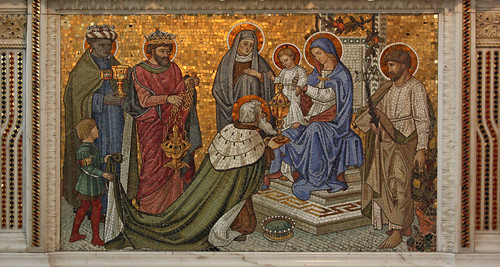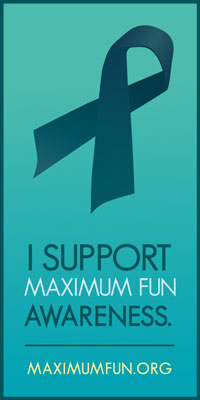I have been thinking a lot lately on fear and how I feel we as a country thrive on it. Since the unsuccessful attempt to blow up a plane in Detroit this week, we have all been reminded of how many of our elected officials love using fear as a weapon, or the phrase 9/11 as if it were the ultimate motivational tool. I have also been thinking a lot on the relationship between Christianity and anarchy.
Christian anarchy as I understand it, is a liberation and freedom from the world’s power structures, while submitting to the authority of God. These power structures include many things, such as the societal structures of government and economy that have been set up throughout history.
Once we recognize that government is no more than a tool (a highly unreliable one at that!), then we are free to be the church - the body of Christ. We are free to live in ways that reflect the Kingdom of God. Chief among these ways is the freedom from worry and fear (Luke 12 or Matthew 6 are good places to start). Jesus points us in the direction of the worry-free life, in fact when he began his ministry, the portions of Isaiah that Jesus recited were all liberating in nature:
“The Spirit of the Lord is upon me,
because he has anointed me
to bring good news to the poor.
He has sent me to proclaim release to the captives
and recovery of sight to the blind,
to let the oppressed go free,
to proclaim the year of the Lord’s favor.” (Luke 4:18-19)
In contrast, the world would have us believe that its full weight is on our shoulders, stressing us as we consider our finances, physical safety, relationships, and more. Because we so easily buy into this sentiment, we foolishly strive to feel safe in a world of chaos and mayhem. We simply have to fess up and confess that the chaos and mayhem are not going to disappear until Christ returns and the Lord brings the fullness of the new heavens and new earth into reality. This is not cause to lose hope, thinking that our actions are fruitless, but rather it is a cause for celebration because not only is the Kingdom going to be a complete reality one day, we are able to join in and experience it now. Christ teaches us both that the kingdom has come near (Luke 10:1-12) and that it is coming (Luke 19:11-27).
But that free response to God’s grace is not how most of us (especially American Christians) go about living our lives. Indeed, we tend to focus more on results than anything else. In work it is our productivity that matters to employers, or we measure our status by our net worth (or conversely our debt). We love putting numbers on everything. As this decade is closing, the number of top ten lists (including recent posts on this blog) are overwhelming. We love figuring out who sold the most movie tickets, concert tickets, albums, or books this year and declaring those ‘the best’. Churches have taken the numbers to new heights with the expansion of the mega-church movement. We have decided that churches with thousands of congregants is something to aspire to, and that pulling people from all over a city from their local neighborhoods is a great way to build a city-wide community, because numbers are the easiest way to quantify success. This is not to say that mega-churches are evil, just that many are misguided in that regard.
I say all that to not that the same results driven approach is carried over to how we view violence, on both a local and global scale. Once again, statistics drive so much about how we view our cities and communities. So, when the number of homicides goes up, we feel more afraid, and when they go down, we are able to pretend that we are safer. Stats like these are used in differentiating the good parts of town from the bad. “Oh I worry so much about you living downtown, it is just not safe!” someone might say. I am not arguing that there are not greater chances of violence in certain areas than in others, but that it simply doesn’t matter.
We believe in a Lord who has conquered death, swallowing it up in victory. This same Lord then gives us commands not to return evil with evil, and to refrain from worry or fear, yet in this country we have gone so far as to set up a color coded system to tell us just how afraid we should be at any given time. We then set up smoke and mirrors by way of buffing up our defense budget and sending our neighbors overseas to kill and be killed. All this is done so that we may feel safe.
We are witnessing it once again in the wake of last week’s attempted attack. Security was too loose before, so now they are beefing it up. We rely on new technologies to outsmart the enemy’s new technologies. When something bad does happen, we need to look for those responsible for letting something like this happen. One could get windburn from all the finger pointing that is going on this week. At the end of the day, we are not really any safer, but at least we can sleep better at night.
Again, I just find this strange. Safety is not something we were promised. Following Christ, and becoming like him means an acceptance that death exists, that violence is real. It is the path he took to the cross and beyond. It is the path that his disciples Stephen, Paul and Peter took as well. While Paul declares death an enemy, something to take seriously, he also proclaims Christ’s victory over death. When we take this seriously we can start shedding the fear away.
It seems a few people have been attributed with similar quotes but here is one helpful example from Dorothy Thompson: “Peace is not the absence of conflict but the presence of creative alternatives for responding to conflict -- alternatives to passive or aggressive responses, alternatives to violence.” Or Martin Luther King Jr.: “True peace is not merely the absence of tension: it is the presence of justice.”
In terms of the biblical narrative, peace will eventually come, but peace in this world is more about our responses to violence than the violence itself.
So, finally, I have decided that my new year’s resolution is to give up fear. I am tired of being told how dangerous the world is, and then allowing that to inhibit my reaction to it. And while I have focused my thoughts here on the issue of violence, that fearlessness must be expanded to the other areas I mentioned earlier- finances, relationship, employment and more. I hope that others might consider this as well.
It is time we started asking some of the what ifs that we usually shrug off as too idealistic.
What if we took Jesus seriously and stopped worrying, trusting in him instead?
What if we got out of the boat like Peter, and let Christ hold us up in the midst of the turbulent waves that make up our own lives?
What if we took Jesus seriously, and found our peace in him, not in our own strength?
What if we trusted him so much that we kept his command to resist returning evil with evil?
What if Christians began to refrain from seeking legal and financial recompence for wrongs suffered?
What if Christians took acts 2:43-47 to heart, and made a concerted effort to live that out in a modern day setting?
What if they were able to do that without declaring it a lefty-communist plot?
What will this look like? I don’t fully know.
But, Robert Park is one example of how it might look. He crossed into North Korea this week to highlight the prison camps they have. He will probably be sentenced to hard labor in one of those very same prisons. Yet even in this case, Washington is already talking about securing his freedom. They don’t realize that his freedom is not insecure because he has been taken under custody by the North Korean government. Au contraire, he might just be one of the most free persons in the world right now.














